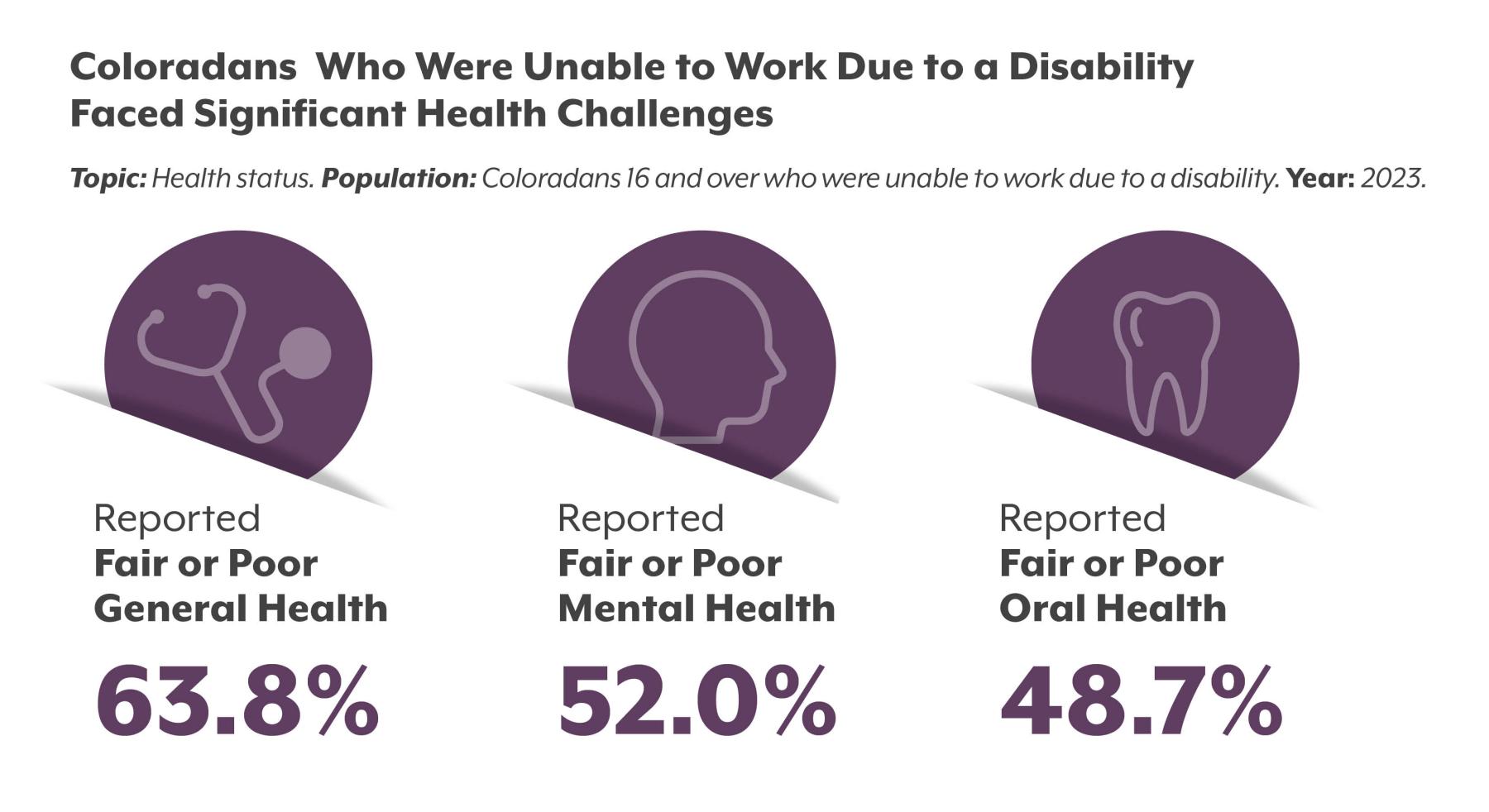Health Status
When it comes to health, Coloradans who were unable to work due to a disability faced significant challenges. Although having a disability can naturally lead to ongoing health problems, it doesn't automatically mean that people with disabilities will always be in poor health. With the right health care and support, health outcomes can improve, and people with disabilities don't have to suffer from poor health continuously.
Health Status. In 2023, 63.8% of Coloradans unable to work due to a disability reported being in fair or poor health, 48.7% reported fair or poor oral health, and 52.0% reported poor mental health. These high levels of poor health signal a health crisis for this community.
Limited ability may contribute to poor health, as 74.2% of these Coloradans said they had difficulty performing daily activities such as bathing, climbing stairs, or errands due to a physical, mental, or emotional condition.
Health Care
People with disabilities also faced barriers in accessing appropriate health care, despite nearly all having health insurance. Barriers identified by the 2023 CHAS included a lack of disability competent health care services, difficulty getting doctor’s appointments, and high out of pocket costs.
Health Insurance. Nearly all Coloradans who were unable to work due to a disability were covered by public health insurance. Of these people, 87.2% were covered by Medicaid or Child Health Plan Plus, and 8.3% were covered by Medicare. Only about 0.7% of Coloradans who were unable to work due to a disability were uninsured.
Getting an Appointment. 43.5% of Coloradans who were unable to work due to a disability said they were not able to get an appointment with a doctor as soon as they needed it. Of those who experienced delays in getting doctor care, 76.1% struggled to access specialty care. Access to mental health care was also a barrier as 33.0% of Coloradans unable to work due to a disability said they could not obtain mental health treatment when needed.
Disability Competent Care. The CHAS asked Coloradans if factors related to their identity or life made a difference in the type of health care they needed. About 662,000, or 12.1%, said yes. Of those who needed different health care due to their identity or life circumstances, 52.3%, or over 327,000, cited a disability or physical, mental, or cognitive condition as a reason for needing different care. This indicates a need for disability-competent care, which is designed to support people living with disabilities.



